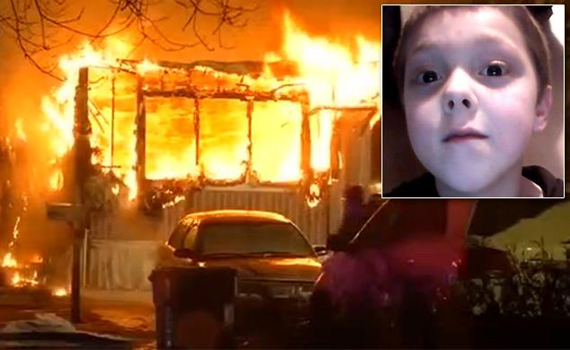
New York, Jan 23: In a heroic act, an eight-year-old boy in the US saved six relatives from a house fire but died while saving his disabled grandfather.
Tyler Doohan, from East Rochester, New York, was staying at the home of relatives in the nearby town of Penfield when he noticed a fire in the single-wide mobile home, Penfield Fire Chief Chris Ebmeyer said.
As firefighters and sheriff's deputies responded to Sunday night's emergency call, Doohan was able to wake six other people in the small trailer, including two more children aged 4 and 6, the fire chief said.
Doohan then went back to help his grandfather, who was disabled and would have been unable to get out of the home on his own, Ebmeyer said.
"By that time, the fire had travelled to the back of the trailer," Ebmeyer was quoted as saying by CNN. "Unfortunately they both succumbed to heat and smoke."
The pair was found together on a bed in the back room. It appeared that the boy was trying to lift his grandfather from the bed when he was overcome by the smoke and fire, the fire chief said.
"It makes me really proud, it really does, but I just want him back," Doohan's mother, Crystal Vrooman, told CNN affiliate WHAM channel.
Doohan and his grandfather were like best friends, Vrooman said.
An online fundraising campaign has so far raised over USD 28,000 for Doohan's funeral and his family.
Another relative was found dead in a front room, although his exact relation to Doohan was not clear.
Several pets -- including dogs, cats, a rabbit and hamsters -- also died in the fire, Ebmeyer said.
Richard Stutzman Jr, interim superintendent of the East Rochester School District where Doohan attended fourth grade, issued a statement, saying: "In bravely and selflessly giving his own life, he was able to save the lives of six others -- and he truly is a hero."





Comments
Add new comment